Journey to Antarctica during the Covid-19 pandemic
14 January, 2021 Rothera
During this year’s construction season at Rothera Research Station, the team begins the second season of erecting a state-of-the-art science and operations facility, The Discovery Building. This vital piece of infrastructure will support future generations of polar scientists and facilitate essential climate change research. Christopher Robert Lloyd, Site Supervisor for Ramboll, shares his first blog of this year’s programme.
On the inauspicious day of Friday 13 November, 40 people from the Antarctic Infrastructure Modernisation Programme (BAS, BAM, Ramboll and Sweco) finished packing their bags, said goodbye to loved ones and prepared to leave home for the last time in 2020.
Quarantine
The next day, along with an additional ten people making up the reserve pool, we travelled to a quarantine centre near Cambridge to prepare for working on one of the most challenging construction seasons, in one of the most inaccessible locations in the world.
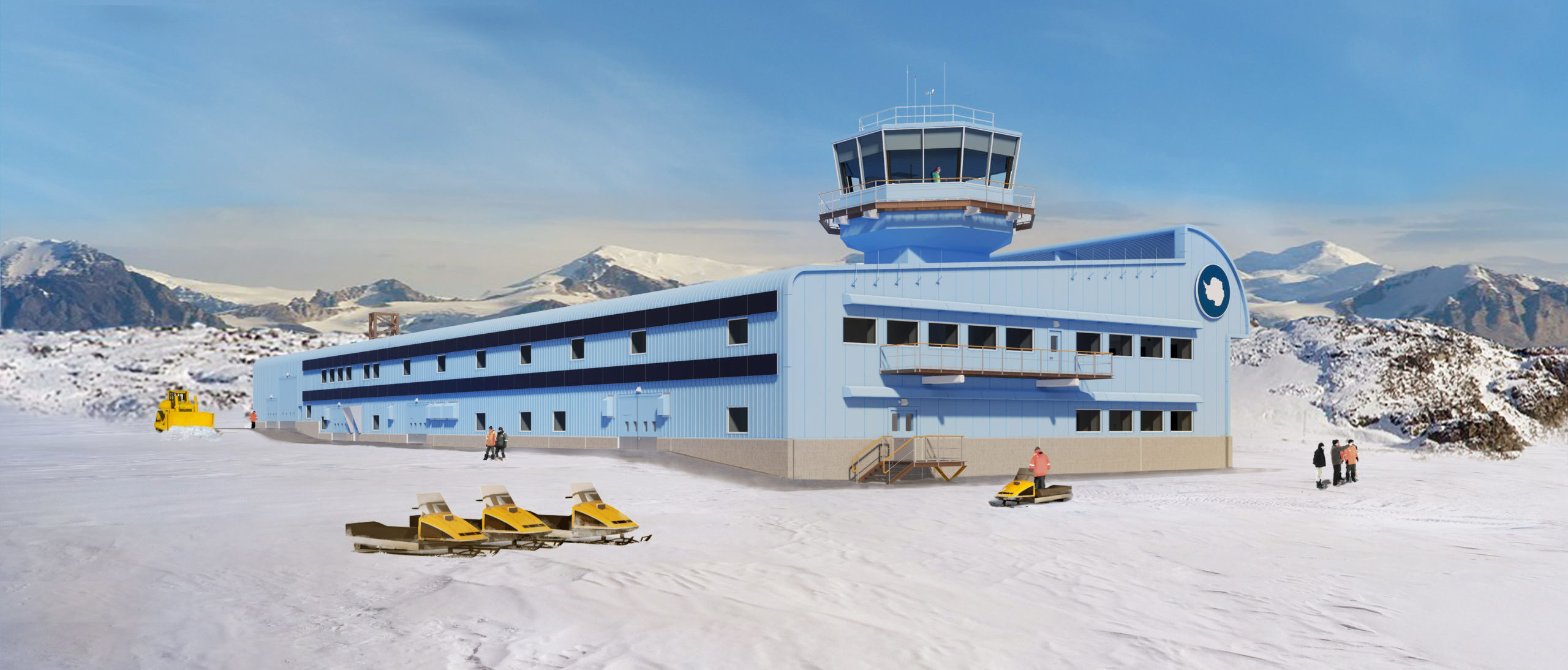
The Covid-19 pandemic made the preparations for the season very challenging, but essential to ensure everyone’s safety and prevent transmission of the virus. Before we had even left home, each person had undertaken daily self-administered temperature checks. Once at the quarantine centre, everyone isolated in their own room for 14-days, with one hour of outside exercise each day. This was spaced throughout the morning and afternoon to avoid contact with each other.
Having endured the isolation, and three separate COVID-19 swab tests during the quarantine, the team was able to safely board two coaches (enabling social distancing during the journey) to Harwich, where we boarded a vessel by BAS to take us to Antarctica. The crew of the vessel had only completed their own quarantine of a similar nature a few days earlier. The voyage to the frozen continent would last over 30 days.
The Long Journey Begins!
Following in the wake of the RRS James Clark Ross, the vessel left Harwich on the evening of the 29 November, heading out of the English Channel and taking a left turn towards North Africa, where it stopped for fuel and additional supplies for the long voyage to the Falkland Islands. Leaving Las Palmas behind us, the ship and crew punched through a band of rough seas and out into the open ocean.
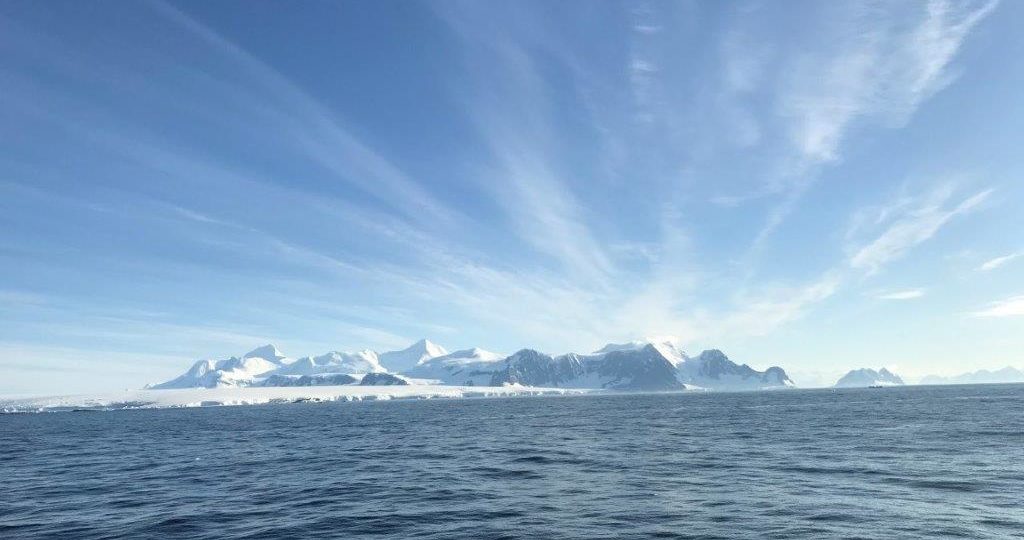
During the four-week trip to Antarctica and our earlier quarantine, we had daily training sessions. This included a lot of additional information for those new to the polar environment, and refresher sessions for the more experienced. Station Leader, Mike Brian held training sessions for Rothera, and further information on meteorological observation and the science equipment at Halley Research Station.
Crossing the North Atlantic and passing through Cape Verde, we crossed the equator on 13 December 2020. Over the next week, the vessel hugged the South American coast, while the team on board helped the crew put up festive decorations in preparation for Christmas Day at Sea. Dodging some rough weather, the vessel finally docked at Port Stanley in the Falkland Islands on Boxing Day.
Here, the ship and crew rested for half a day, taking on supplies fuel and even additional BAS passengers. Six more BAS staff were required to undergo their own extended quarantine in the Falkland Islands, each spending Christmas Day isolated in their own room. Having passed their own swab tests, they were able to remove their masks and join their fellow travellers for the final leg of the voyage.
Arrival at Rothera
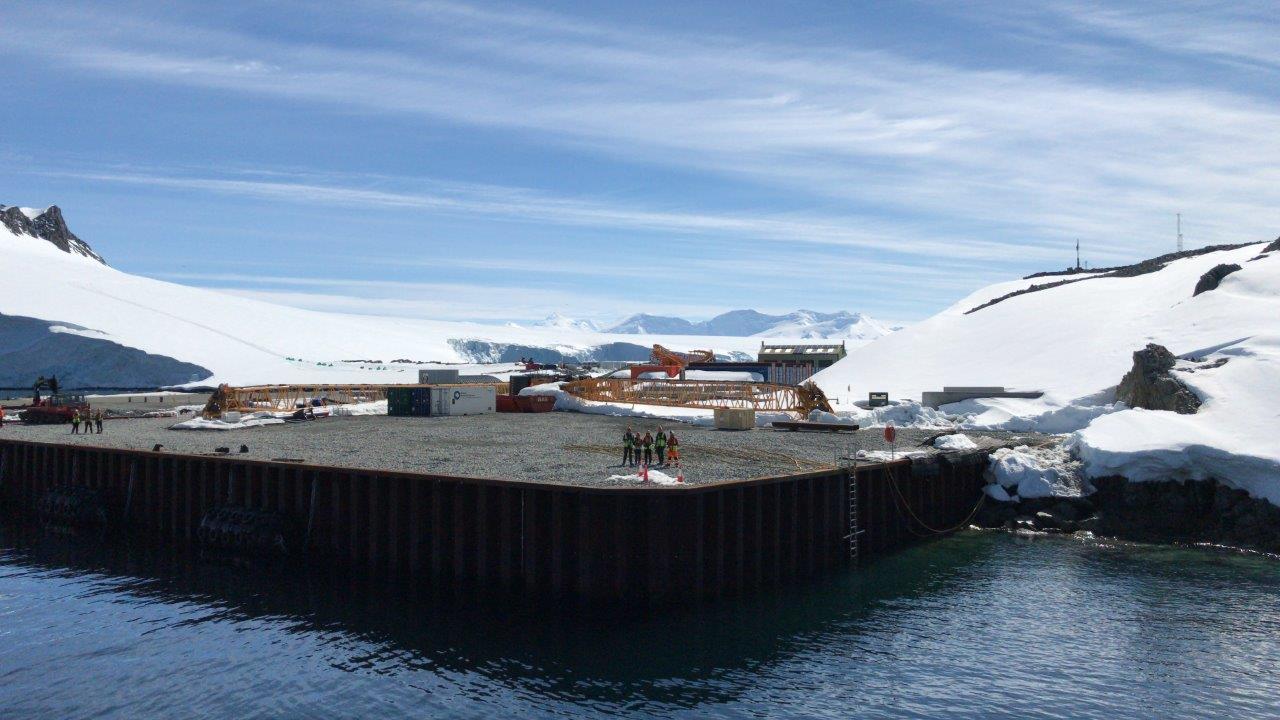
The patience and resilience of the team was finally rewarded, crossing the notorious Drake’s Passage (body of water connecting the Atlantic Ocean to the Southern Ocean) in three days with some of the best weather for the time of year (so the Captain informed us). The team arrived safely in Rothera on New Year’s Eve 2020.
Within a day of arrival, the construction team had already begun snow clearance around the station and dewinterising their plant equipment for the work ahead. The activity plans for the season had already been reviewed and signed off during the quarantine and the voyage, and the team had no reason to wait around.
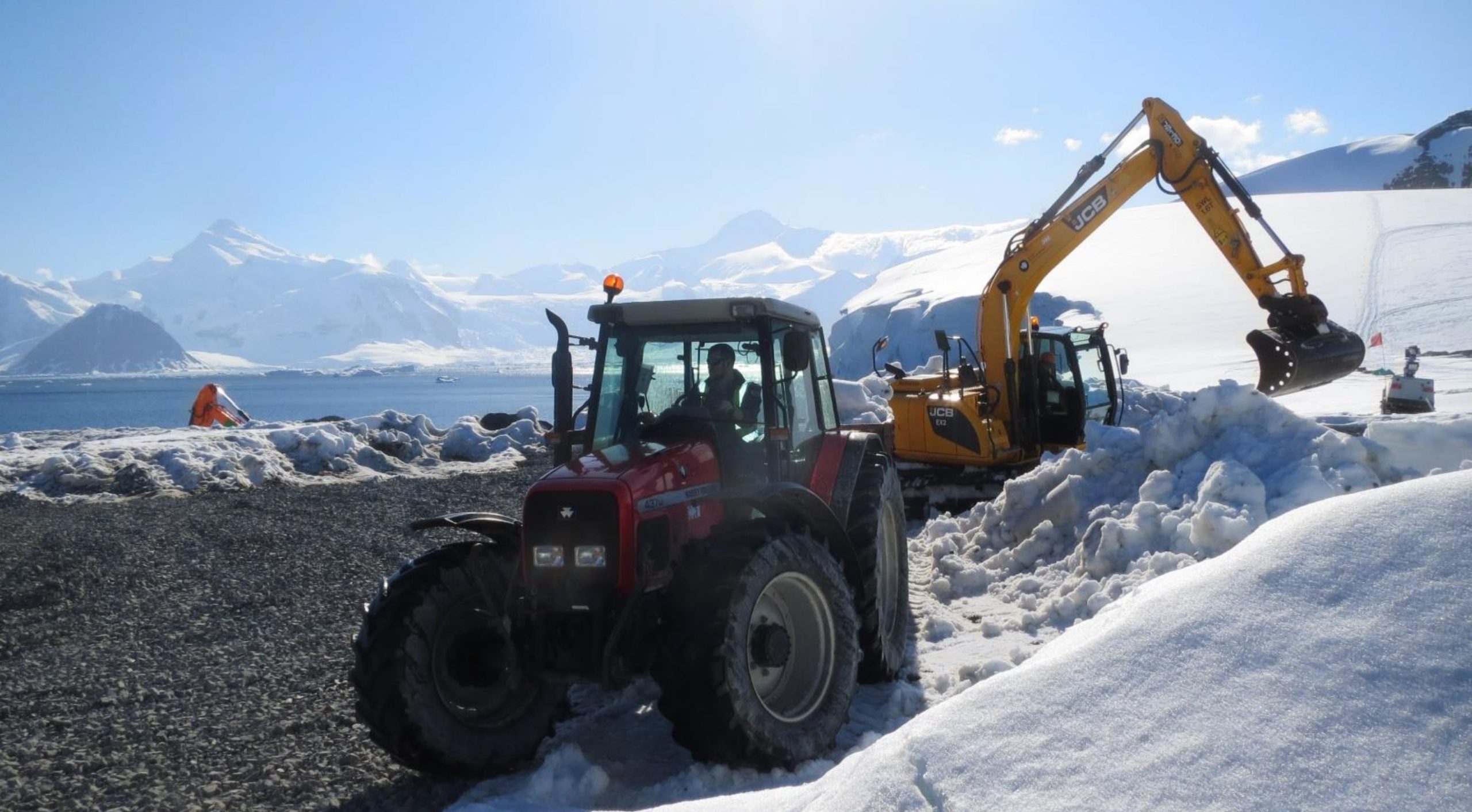
Now, the clock is ticking, With such a short season, there is a huge amount of work to do in order to complete the foundations of the Discovery Building, install the footings for the new site wide services and safely pack the equipment away again for another winter.
I feel privileged to be part of a small team providing technical expertise and support on-site at Rothera. Antarctica is one of the few remaining unspoilt natural environments, and the research station generates around one gigabyte of science data every day, contributing to our understanding of climate change, metrological modelling and space weather.
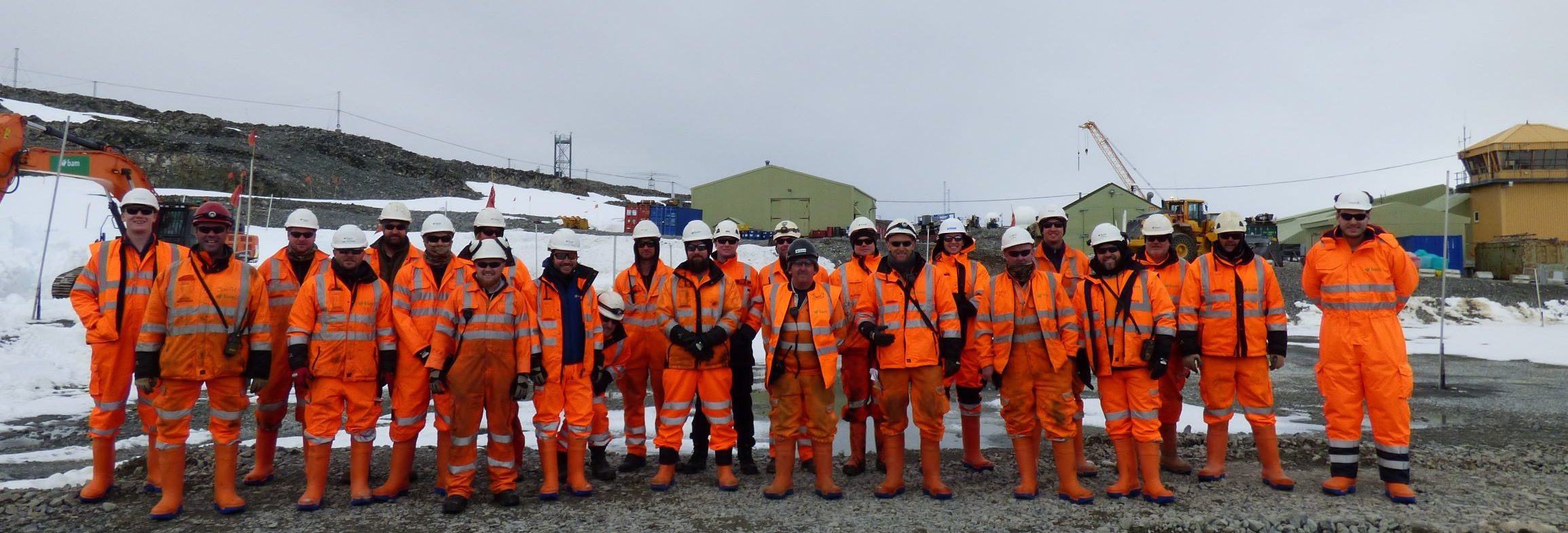
Find out more about the start of this year’s construction season and the Discovery Building.